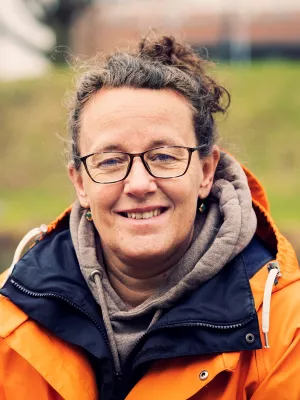
Johanna Alkan Olsson
Universitetslektor

Integrated Assessment of Agricultural and Environmental Policies – A Modular Framework for the EU (SEAMLESS)
Författare
Summary, in English
Abstract in Undetermined
Agricultural systems continuously evolve and are forced to change as a result of a range of global and local driving forces. Agricultural technologies and agricultural, environmental and rural development policies are increasingly designed to contribute to the sustainability of agricultural systems and to enhance contributions of agricultural systems to sustainable development at large. The effectiveness and efficiency of such policies and technological developments in realizing desired contributions could be greatly enhanced if the quality of their ex-ante assessments were improved. Four key challenges and requirements to make research tools more useful for integrated assessment in the European Union were defined in interactions between scientists and the European Commission (EC), i.e., overcoming the gap between micro-macro level analysis, the bias in integrated assessments towards either economic or environmental issues, the poor re-use of models and hindrances in technical linkage of models. Tools for integrated assessment must have multi-scale capabilities and preferably be generic and flexible such that they can deal with a broad variety of policy questions. At the same time, to be useful for scientists, the framework must facilitate state-of-the-art science both on aspects of the agricultural systems and on integration. This paper presents the rationale, design and illustration of a component-based framework for agricultural systems (SEAMLESS Integrated Framework) to assess, ex-ante, agricultural and agri-environmental policies and technologies across a range of scales, from field-farm to region and European Union, as well as some global interactions. We have opted for a framework to link individual model and data components and a software infrastructure that allows a flexible (re-)use and linkage of components. The paper outlines the software infrastructure, indicators and model and data components. The illustrative example assesses effects of a trade liberalisation proposal on EU's agriculture and indicates how SEAMLESS addresses the four identified challenges for integrated assessment tools, i.e., linking micro and macro analysis, assessing economic, environmental, social and institutional indicators, (re-)using standalone model components for field, farm and market analysis and their conceptual and technical linkage.
Agricultural systems continuously evolve and are forced to change as a result of a range of global and local driving forces. Agricultural technologies and agricultural, environmental and rural development policies are increasingly designed to contribute to the sustainability of agricultural systems and to enhance contributions of agricultural systems to sustainable development at large. The effectiveness and efficiency of such policies and technological developments in realizing desired contributions could be greatly enhanced if the quality of their ex-ante assessments were improved. Four key challenges and requirements to make research tools more useful for integrated assessment in the European Union were defined in interactions between scientists and the European Commission (EC), i.e., overcoming the gap between micro-macro level analysis, the bias in integrated assessments towards either economic or environmental issues, the poor re-use of models and hindrances in technical linkage of models. Tools for integrated assessment must have multi-scale capabilities and preferably be generic and flexible such that they can deal with a broad variety of policy questions. At the same time, to be useful for scientists, the framework must facilitate state-of-the-art science both on aspects of the agricultural systems and on integration. This paper presents the rationale, design and illustration of a component-based framework for agricultural systems (SEAMLESS Integrated Framework) to assess, ex-ante, agricultural and agri-environmental policies and technologies across a range of scales, from field-farm to region and European Union, as well as some global interactions. We have opted for a framework to link individual model and data components and a software infrastructure that allows a flexible (re-)use and linkage of components. The paper outlines the software infrastructure, indicators and model and data components. The illustrative example assesses effects of a trade liberalisation proposal on EU's agriculture and indicates how SEAMLESS addresses the four identified challenges for integrated assessment tools, i.e., linking micro and macro analysis, assessing economic, environmental, social and institutional indicators, (re-)using standalone model components for field, farm and market analysis and their conceptual and technical linkage.
Avdelning/ar
- LUCSUS
Publiceringsår
2008
Språk
Engelska
Sidor
150-165
Publikation/Tidskrift/Serie
Agricultural Systems
Volym
96
Issue
1-3
Dokumenttyp
Artikel i tidskrift
Förlag
Elsevier
Ämne
- Social Sciences Interdisciplinary
Nyckelord
- bio-economic farm model
- cropping system model
- impact assessment
- indicators
- market model
- sustainable development
Status
Published
ISBN/ISSN/Övrigt
- ISSN: 0308-521X